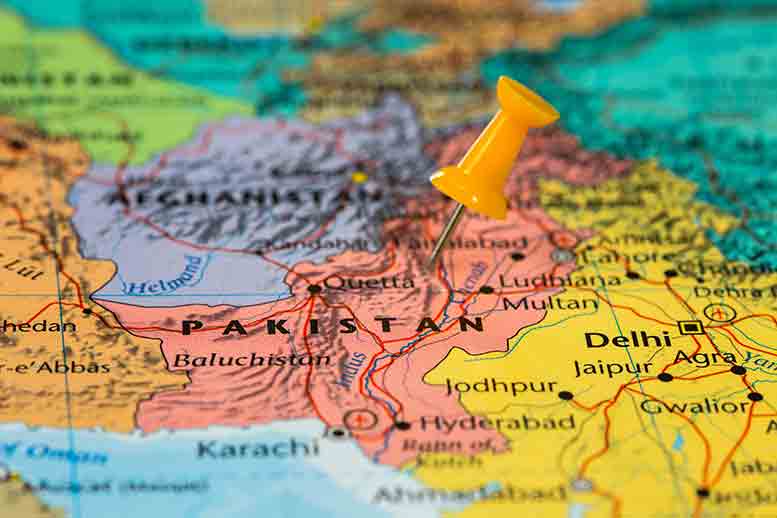The Pakistani government said it hopes to capitalize on the CBD market as it took the first steps toward creating a national hemp program last week. The federal cabinet approved hemp production under government control, calling it a “landmark decision” that could eventually boost the fortunes of private commercial companies and farmers.
Minister for Science and Technology Fawad Chaudhry announced the cabinet of Prime Minister Imran Khan also had approved a first research license for the Ministry of Science & Technology’s Council of Scientific and Industrial Research (PCSIR) to analyze such things as local cultivars, plant chemistry, and potential industrial and other applications. The government said it will also take time to develop “safeguards” while the plant is still under government control.
Khan’s government has pushed for development of a cannabis economy as one way to improve Pakistan’s foreign exchange position amid the country’s economic challenges. “We want the hemp market to generate $1 billion for Pakistan in the next three years,” Chaudhry said.
Breakthrough for research
“This is a major breakthrough first for research institutions,” said Muhammed A. Qayyum, an adviser to the Pakistani government, and a director at Medics Laboratories Pvt. Ltd., Karachi, a producer of herbals and nutraceuticals. “Cannabis has always been a no-go area, so this means they can start working on the required studies.”
Qayyum said the well-regarded International Center for Chemical and Biological Sciences (ICCBS) at the University of Karachi, which does R&D into the biology of plants, will also play a key role in the country’s cannabis research.
ICCBS was chosen by the government to work on the project because it has all the equipment and expertise required for certification and validation of hemp products, according to Dr. Iqbal Chaudhry, the Center’s Director. He said Pakistan can develop value-added products for export using ICCBS’s research facilities.
Replacing cotton
Pakistan’s government also noted hemp’s potential as a more sustainable replacement for cotton production, which is in decline; the country was once the fourth biggest cotton producer in the world behind China, India and the USA, and the world’s largest exporter of cotton yarn. But Pakistan’s farmers are shifting from cotton to other crops due to overall imbalances in industry, low prices and a lack of high-quality seed.
Aside from health and textile applications, the government also said Pakistan could turn hemp fiber residue into bio-energy. Plans also call for the government to develop a “precision agriculture” project under which high-technology farms for hemp and other non-traditional agriculture sectors.
Farming nation
Pakistan is a farming nation. Agriculture accounts for about 18.9% of the country’s GDP and employs about 42.3% of the labor force, according to the Ministry of Finance.
According to the Pakistan-based NGO, Society For Conservation and Protection of The Environment (SCOPE), 5 percent of the Pakistan’s population owns roughly 64 percent of its farmland, while 15% of total land is held by small farmers on plots of land smaller than five acres; yet small farmers have higher net returns per hectare than large farms, according to government farm income data.
How fast?
Sites chosen for hemp production in the first phase of the government’s hemp plan are near Peshawar, Chakwal and Jhelum, all cities in the north of the country. Proponents have said growing conditions in Pakistan make hemp a potentially big crop in almost all regions. The plant already grows wild in some places.
Quayyum said hemp production could get going quickly if only a rule change by the Ministry of Narcotics is required. If changes in law are needed, the process will take longer, he said, noting it is not yet clear how rules will be shaped for CBD and food.
History
Cannabis has been grown in Pakistan for centuries, and predates the arrival of Islam in the region, with reference to cannabis appearing in the sacred Hindu Atharva Veda text describing its medicinal and ritual uses.
In current Pakistani law, hemp is lumped with marijuana and therefore illegal. Marijuana, however, is on the black market and often sold in the form of “charas,” a spongy, black hash made from cannabis grown in the country’s tribal belt and in neighboring Afghanistan.

